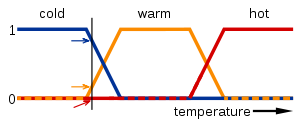Zeitgeist
This paper discusses the recent trends in BIOMEDICAL ENGINEERING. The rapid progress of biomedical instrumentation allows the production of systems and components with a low cost- to- performance ratio.
The paper introduces new trends in sensor technology encompassing the principles of Fuzzy Logic Controllers and Laser Displacement Sensors. It discusses the operating principles, detailed setup and measuring various parameters by different methods. In this paper we will give an overview of the recent advances and new development trends in the field of biomedical instrumentation which includes their applications in:
Fuzzy Logic Control of Inspired Oxygen Concentration in Ventilated Newborn Infants
Need to Automate Biomedical Instrumentation Systems
• Automatic systems can work in different modes depending on user requirements.
• The observation consistency.
• Objective and uniform measurements;
• High frequency of data provision;
• Higher accuracy and quality of data;
• Better timeliness and data availability;
• More frequent special observations;
• Higher density of observations available in real time;
• Continuous measurement of the atmosphere (each minute up-to-date observations);
• Data from Automatic systems can be integrated more effectively with the data from other systems;
• Lesser cost per data piece.
Fuzzy Logic Control of Inspired Oxygen Concentration in Ventilated Newborn Infants
The control of oxygen delivery to mechanically ventilated newborn infants is a time intensive process that must balance adequate tissue oxygenation against possible toxic effects of oxygen exposure. Investigation in computer assisted control of mechanical ventilation is increasing, although there are very few studies involving newborn infants. We have implemented a fuzzy controller for the adjustment of inspired oxygen concentration (FIO2) in ventilated newborns. The controller utilizes rules produced by neonatologists, and operates in real-time. A clinical trial of this controller is currently taking place in the neonatal intensive care unit (NICU) of Children's Hospital, Boston, MA.
Introduction to Fuzzy Logic
Wide range of opportunities is open in the field of digitally controlled systems by microcomputer development. Digitally measured information is rapidly processed. Complex systems are easily controlled. The diversity of controlling software allows more creativity to experts. New approach in controlling was introduced, using the fuzzy regulators. The expert, familiar with the certain process, easily can implement the solution, by simply writing and changing the program code. Flexibility in control realization and modifications are easy using software, simply changing the code. New methods of control are introduced. In many different conditions, these prove to be very efficient. A specific application: neural networks and fuzzy logic use on system control.

Advantages of fuzzy logic
• Optimizes the already existing solutions, with the purpose to achieve a more simple and efficient end
• Reduces the price of the end product on the bases of simplified procedure of
• Clarifies the system. System is understandable, easier for maintenance and
• Higher resistance to errors and changes of the system
• Increases the system robustness without decreasing its
Thus on the basis of the performed experiments, we can conclude that fuzzy logic controllers are applicable in the problems of temperature regulation.
zeitgeist-5802-dXySw2h.pdf (258 KB)

